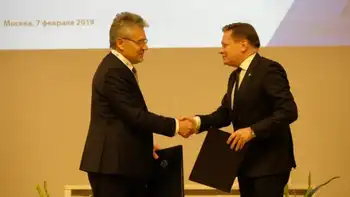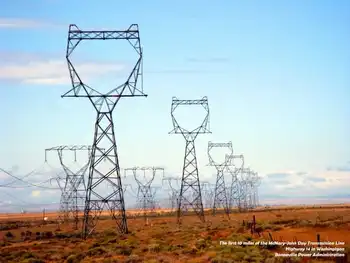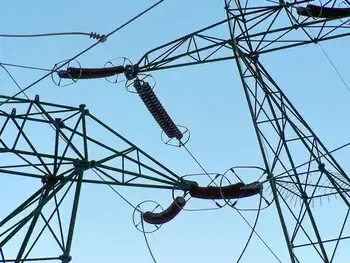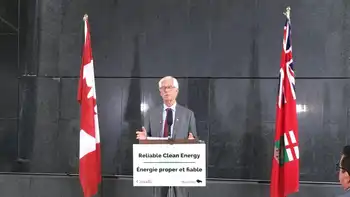EU's Baltic states still 'islands' in power market
VILNIUS, LITHUANIA - Five years since they joined the European Union, the bloc's Baltic states are still barely plugged into its electricity network and remain hooked to the grid of their Soviet-era master Moscow.
Limited moves to resolve the situation mean the role of Russian power is set to strengthen from the end of this year, when a key but aging nuclear power plant in Lithuania closes down under a deal with Brussels.
"We are not yet in the EU as far as energy is concerned," Romas Svedas, deputy energy minister of Lithuania, told AFP.
Lithuania and its fellow Baltic states Latvia and Estonia won independence from the crumbling Soviet Union in 1991, but remain largely cut off from the electricity of the rest of the EU, which they joined in 2004.
"Right now our energy networks are pretty isolated from the rest of Europe," Latvian Foreign Minister Maris Riekstins told AFP.
Estonian Prime Minister Andrus Ansip, meanwhile, compared the three nations to "islands".
"There is a need for a better integration of the Baltics," he said, adding that "security in our region will be much higher."
The Baltic states have been pressing the EU to forge a common policy, seeing it as crucial amid concern about Russia's use of its energy clout.
The European Commission — the 27-nation EU's executive — is keeping the Baltic situation under watch and has tasked experts with producing by July a plan to connect their grids.
The Baltic trio are also laying the way for themselves.
"In electricity we are working on a common Baltic electricity market and facilitating trade in electricity, based on Nord Pool. We would like to use this model," Svedas said, referring to the Norway-based Nordic power bourse set up in 1993.
As a first step, Lithuania aims to liberalize half its electricity market from next year. Estonia also aims to join Nord Pool "as soon as possible," said Ansip.
That looks doubtful however, because Nord Pool has just decided to pull out of Estonia.
Tallinn aims to liberalise its electricity market by 2013, but Nord Pool is riled by the government's failure to free it up partially this year, Nord Pool project manager Pasi Koukkanen said.
Einari Kisel, Estonia's deputy energy secretary, rejected that, saying Nord Pool was failing to take local concerns into account.
"For example, they do not want to control the potential inflow of Russian electricity supplies, which in the Baltic circumstances would greatly influence long-term energy security," Kisel said.
To date, the only EU power link for the Baltic trio is undersea cable linking Estonia to Finland, which went online in January 2007.
A second, more powerful link is due along the same route, but the sparring with Nord Pool could delay it until 2018.
The Baltic states were meant to decide last year on another cable to Sweden, but the plan has been held up by wrangling between Lithuania and Latvia over hosting the hub.
Lithuania has also been hoping by 2010 to be linked to Poland's grid, which would in addition allow it to import from and export electricity to elsewhere in Europe.
But moves there have been similarly slow, partly because of spats over the relative share of output from a planned nuclear power plant that Poland and the Baltic states aim to build in Lithuania.
Lithuania is home to a Soviet-era power station near Ignalina in the east of the country — the same type that exploded at Chernobyl in 1986 — which generates 70 percent of its power.
Vilnius pledged to close Ignalina by 2010 under its EU membership terms, and already shut down one reactor in December 2004.
The plan is to build a new plant by 2018 — although experts suggest 2020 is more realistic — raising the spectre of power shortfalls until it comes online.
Estonia is considering building its own plant, a debate that would have been "unthinkable" until recently, according to Latvian analyst Nils Muiznieks.
"It shows how everybody is frustrated with the Lithuanians," he told AFP.
Estonia is better-placed to cope than Lithuania and Latvia thanks to its status as the world's leading oil shale producer, meaning it is a net exporter of electrical power, but is looking to rein in use of that fossil-fuel source.
The Ignalina shutdown will leave Lithuania ever more dependent on Russian gas to drive its power stations — like Latvia, which Muiznieks said is already "on the syringe of Russian gas".
Related News

Cooperation agreement for Rosatom and Russian Academy
MOSCOW - Russian state atomic energy corporation Rosatom and the Russian State Academy of Sciences are to cooperate on joint scientific, technical and innovative activities in areas including nuclear energy, nuclear medicine and other areas under an agreement signed in Moscow on 7 February.
The cooperation agreement was signed by Rosatom Director General Alexei Likhachov and President of the Russian Academy of Sciences Alexander Sergeev during a joint meeting to mark Russian Science Day. Under its terms, the partners will cooperate in organising research and development activities aimed at providing technological advantages in various sectors of the domestic industry, as well…




